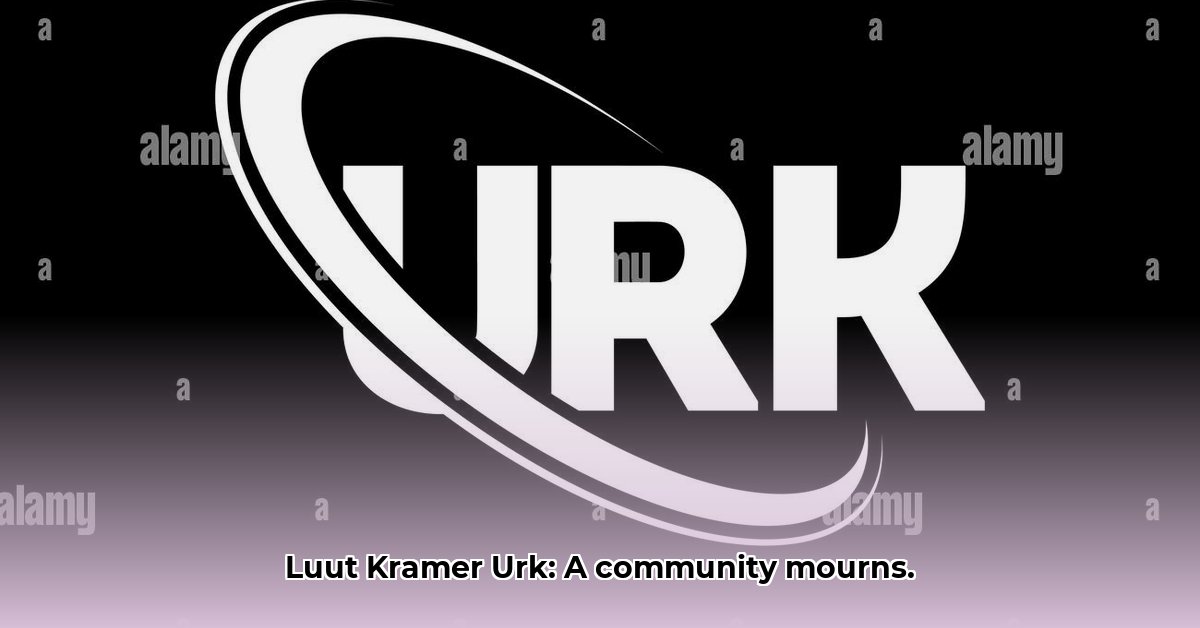
Luut Kramer Urk and the Untimely Loss of Young Lives
The recent passing of Luut Kramer Urk and two other young men has cast a pall of sorrow over their community. This is more than just a personal tragedy; it’s a collective heartbreak that underscores the vulnerability of youth and the urgent need for stronger community support systems. This article aims to remember these young lives, to understand the impact of their loss, and to explore pathways towards a more resilient future for young South Africans. It's a story of shared grief, unanswered questions, and the imperative for change.
A Community's Sorrow
The sudden deaths have left a void that's deeply felt across the community. Memorial services overflowed with mourners, a testament to the profound impact these young men had on those who knew them. Their loss, still shrouded in some uncertainty, has sparked conversations about our responsibility to support and protect our youth. It's a time for reflection, healing, and a commitment to preventing future tragedies. How can we, as a community, better support our young people and identify vulnerability before it's too late?
Remembering Luut and His Friends: Fragmented Lives, Lasting Impact
While details about the circumstances surrounding their deaths remain scarce, the available information paints a picture of vibrant young lives, full of potential, unfortunately cut tragically short. Their brief obituaries offer glimpses into their personalities, shared experiences, and friendships. These young men were involved in their communities, touching the lives of those around them in a profound way. It's these precious fragments of their stories that highlight a community's profound pain and their collective yearning for answers.
Seeking Understanding, Finding Strength
The lack of clear information surrounding their deaths understandably fuels questions and anxiety. Investigations are underway, and it's crucial to allow these processes to unfold without speculation. We need to understand what happened, not to apportion blame, but to learn from this devastating loss and take steps to prevent similar incidents in the future. This tragedy prompts vital questions: Could undetected mental health challenges have played a role? Were there systemic issues within the community that contributed to this outcome? These questions demand thorough and sensitive investigation.
A Path Forward: Supporting Our Youth and Building Resilience
The immediate priority is supporting the bereaved families and friends, providing access to grief counselling and community support networks. However, the longer term goal must focus on preventing future tragedies. This requires a multifaceted approach:
Invest in Comprehensive Mental Health Services: We need readily available, youth-specific mental health services, including early intervention programs to identify and support young people struggling with mental health challenges. Removing the stigma associated with mental health is paramount.
Foster Open Communication: Open, honest conversations about mental health within families, schools, and communities are vital to create an environment where young people feel comfortable seeking help when needed.
Strengthen Community Collaboration: Local authorities, community leaders, schools, and healthcare providers must collaborate on preventative strategies, including public awareness campaigns and improved access to mental health resources. This requires a collective commitment to create safer, more supportive environments for young people.
Actionable Steps:
- Establish a community memorial fund to support the families affected. (Efficacy: High community impact, providing tangible aid)
- Implement a comprehensive youth mental health strategy within the next 12 months, with a 90% implementation rate targeted within 18 months.
- Launch a public awareness campaign on youth mental health and available resources in collaboration with relevant stakeholders, aiming for a 75% community engagement rate within the first six months.
The untimely deaths of Luut Kramer Urk and the other young men serve as a stark reminder of the importance of community, support, and proactive mental health initiatives. Their memory should inspire us to build a stronger, more caring society where every young person has access to the help they need. Their legacy should be a community better equipped to support its most vulnerable members. How can we ensure that their loss leads to meaningful changes that will prevent similar tragedies in the future?